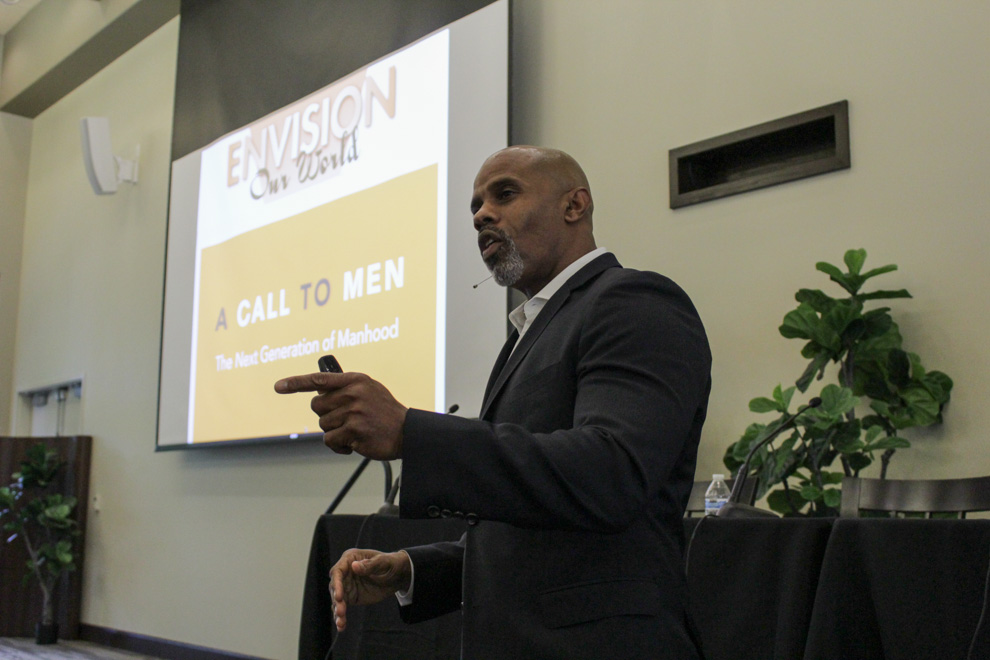Madeleine Lippey ’18 is out to reshape the conversation around sexual violence on campus. Last Saturday, she worked with an array of cosponsors to host the Fearless Conference to provide a centralized and safe space for Stanford students to discuss topics surrounding sexual violence, including masculinity, sex education, survivor support and Title IX policies.
Lippey organized the first Fearless symposium in New York while interning at the Joyful Heart Foundation over the summer and sought to bring the successful conference to Stanford. She catered this second Fearless conference specifically to Stanford students by bringing in a panel of male undergraduate student leaders and inviting law professor Michele Dauber to speak at the event.
“I began thinking about ways to develop a diverse, intersectional, inclusive program, something people can look forward to every year like they look forward to DM and to other staple Stanford events,” Lippey said. “And it really made no sense to me that there was not something like that for this topic, something that represented student voices and student opinions.”
Although several groups on campus have engaged with the issue of sexual assault through various programming, there has not been a concerted effort to centralize the movement, according to Lippey. She hopes that the Fearless Conference can become that central vessel.
“There are a lot of people on this campus who care deeply about this issue, and there’s a lot of really important and effective projects that are going on right now,” Lippey said. “But I also think that those projects need to be centralized and work better together to make better impact.”
Although her main goal for the conference was to empower survivor voices, she also encouraged a strong male-identifying presence at the conference by asking many fraternity groups to send their new pledge classes to the symposium.
“Males tend to feel that they don’t have as much of a stake in the issue, but when given the chance to have one, to step up, I think they would take it,” Lippey said. “And they do take it.”
Fearless organizers also encouraged self-reflection through “breakout” sessions that asked facilitators to lead small-group discussions to help participants reflect on what they have learned.
“An important thing about the breakouts is to make sure to give space to people who’ve discussed things that normally wouldn’t be discussed in common conversation, especially with regards to survivor stories and narratives,” facilitator Shankara Anand ’17 said.
One of the first speakers, Ted Bunch, co-founder of the organization A Call to Men, gave a talk that focused on the importance of bystander intervention and shifting cultural norms for men.
“Here’s another socialization: If you know the answer, you’ve been socialized the same way that your peers have been socialized,” Bunch said. “A 6-year boy throws a football and his father says, ‘You got to throw harder, you throw like a…?’”
“Girl,” a dozen voices from the audience finished for him.
Bunch included the above example in explaining his symbolic “Man Box,” a socialization trap imposed by society to dictate acceptable traits of masculinity. Bunch argues that the Man Box is counterproductive in fighting against male-perpetrated sexual violence.
He also listed several statistics including the often quoted estimation that one in five women is sexually assaulted at college. As Greek life often involves alcohol and parties that are correlated with higher sexual assault rates, members of the Greek community should be aware of their role in the conversation, according to Fearless programming co-director and Sigma Nu member Michael Kim ’17.
“I think all of us in and outside of Greek life should be part of this conversation, but as fraternity members, we are at a higher level of culpability and responsibility of educating ourselves and educating others,” Kim said.
Active participation in the conversation against sexual assault was a common theme throughout the conference.
“At Stanford, there’s a tendency for the whole group to agree that sexual assault is a big deal and that everyone is on the same page about that,” Kim said. “[But] I don’t think it’s enough for everyone to say ‘yes, this is a problem’ and expect everyone else to deal with it.”
Contact Glenn Baxter at gbaxter ’at’ stanford.edu and Ariel Liu at aliu15 ‘at‘ stanford.edu.
